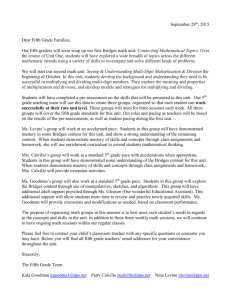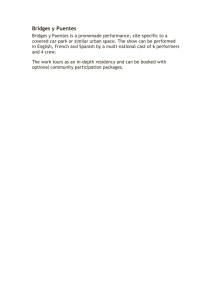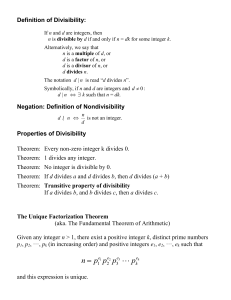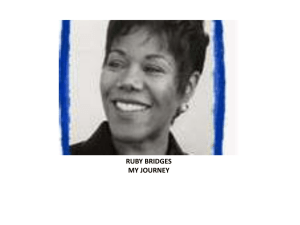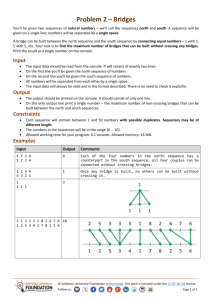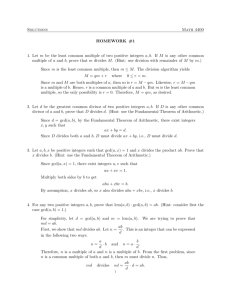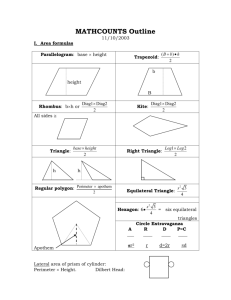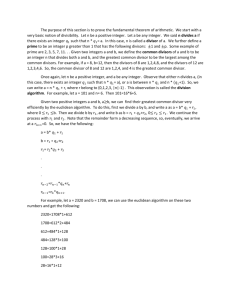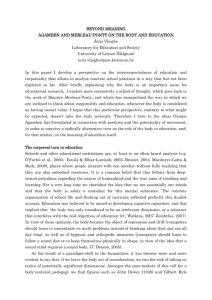FIFTH EUROPEAN STUDIES CONFERENCE DECEMBER 6
advertisement
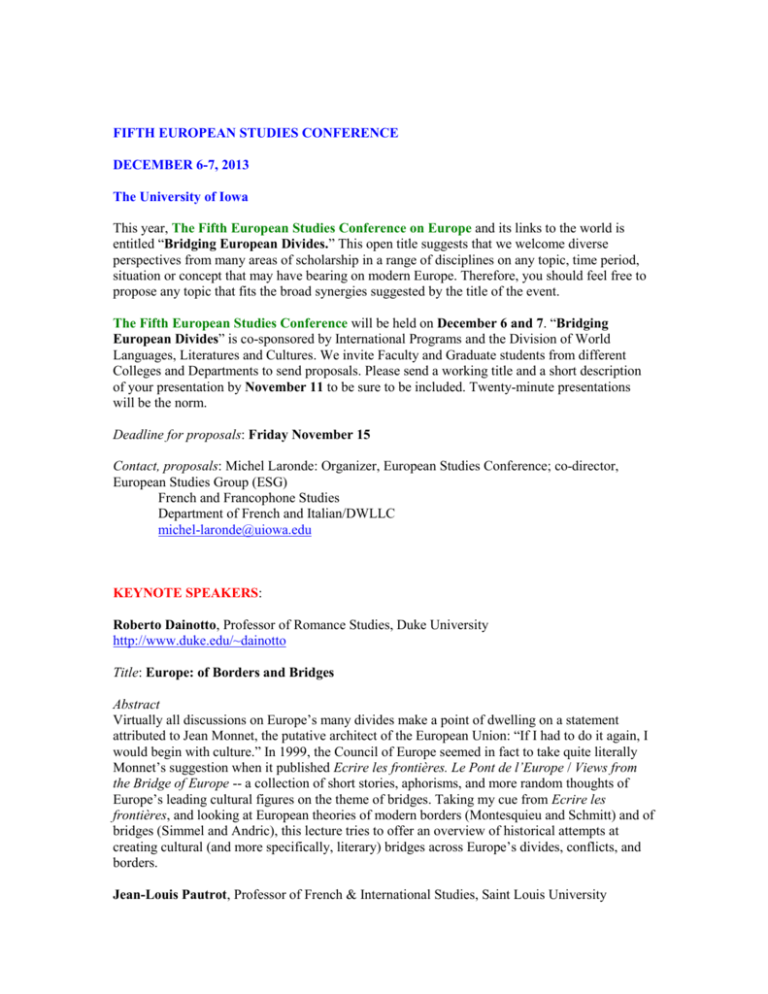
FIFTH EUROPEAN STUDIES CONFERENCE DECEMBER 6-7, 2013 The University of Iowa This year, The Fifth European Studies Conference on Europe and its links to the world is entitled “Bridging European Divides.” This open title suggests that we welcome diverse perspectives from many areas of scholarship in a range of disciplines on any topic, time period, situation or concept that may have bearing on modern Europe. Therefore, you should feel free to propose any topic that fits the broad synergies suggested by the title of the event. The Fifth European Studies Conference will be held on December 6 and 7. “Bridging European Divides” is co-sponsored by International Programs and the Division of World Languages, Literatures and Cultures. We invite Faculty and Graduate students from different Colleges and Departments to send proposals. Please send a working title and a short description of your presentation by November 11 to be sure to be included. Twenty-minute presentations will be the norm. Deadline for proposals: Friday November 15 Contact, proposals: Michel Laronde: Organizer, European Studies Conference; co-director, European Studies Group (ESG) French and Francophone Studies Department of French and Italian/DWLLC michel-laronde@uiowa.edu KEYNOTE SPEAKERS: Roberto Dainotto, Professor of Romance Studies, Duke University http://www.duke.edu/~dainotto Title: Europe: of Borders and Bridges Abstract Virtually all discussions on Europe’s many divides make a point of dwelling on a statement attributed to Jean Monnet, the putative architect of the European Union: “If I had to do it again, I would begin with culture.” In 1999, the Council of Europe seemed in fact to take quite literally Monnet’s suggestion when it published Ecrire les frontières. Le Pont de l’Europe / Views from the Bridge of Europe -- a collection of short stories, aphorisms, and more random thoughts of Europe’s leading cultural figures on the theme of bridges. Taking my cue from Ecrire les frontières, and looking at European theories of modern borders (Montesquieu and Schmitt) and of bridges (Simmel and Andric), this lecture tries to offer an overview of historical attempts at creating cultural (and more specifically, literary) bridges across Europe’s divides, conflicts, and borders. Jean-Louis Pautrot, Professor of French & International Studies, Saint Louis University http://www.slu.edu/~pautrot Title: Challenging the Divides at the Core of European Modernity: Agamben and Quignard on Naked Life Abstract Giorgio Agamben (born in 1942) is an Italian philosopher. Pascal Quignard (born in 1948) is a French author of fiction and meditative books. Both endeavor to rethink the foundations of European Modernity, in the wake of epistemological advances and theories of the 20th-century (Freud, Bataille, Benjamin, Foucault, Derrida, etc.). Although producing strikingly different forms of discourse, they share a number of similarities in the way they challenge the Cartesian and Hobbesian tradition, and much of the heritage of the Enlightenment. Both of them articulate the foundations of their thinking around the historical and genocidal disasters of the 20th century and totalitarianism, which makes them distrustful of any form of power. Both of them examine and rethink the dichotomy between individual and society, between particular and general, by seeking singularity without identity. Both of them seek manners of being together that do not involve a constraining social structure. Both of them challenge the defining divide between Human and Animal, the very “frontier” at the core of the Western philosophical tradition and history. Ultimately, both aim for a new notion of human life or presence that would not entail violent consequences for some or all of humanity. Their ideas are indicative of a shift in European thought that carries much import for the idea of community.

